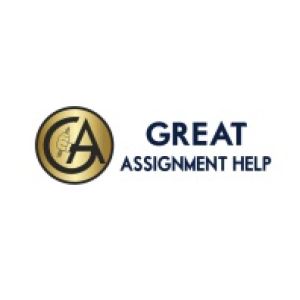Analyzing the Quality of Education in KuwaitPosted by james joseph on August 18th, 2023  Education plays a crucial role in shaping a nation's future by providing its citizens with the necessary knowledge, skills, and tools to succeed in various aspects of life. Kuwait, a small yet affluent country situated in the Middle East, has made significant strides in its education system over the years. This essay aims to delve into the question: "Does Kuwait have good education?" by examining various facets of the Kuwaiti education system, including its strengths, challenges, reforms, and the overall quality of education. Overview of the Kuwaiti Education SystemThe education system in Kuwait is characterized by a blend of traditional and modern approaches. Education is compulsory for Kuwaiti citizens from kindergarten to the secondary level. The Ministry of Education governs the education system, and its policies are aimed at ensuring quality education for all. Kuwait's commitment to education is evident by the substantial portion of its budget allocated to the education sector. Strengths of Kuwait's Education System1. Access to Education: Kuwait places a high emphasis on providing access to education for all of its citizens. Public education is free from kindergarten to the secondary level, ensuring that children from all socioeconomic backgrounds can receive education without financial barriers. 2. Investment in Infrastructure: The government has invested significantly in educational infrastructure, building modern schools, equipped with advanced facilities and resources to enhance the learning experience. 3. Technological Integration: Kuwait has made efforts to integrate technology into the education system. This includes the provision of computer labs, digital resources, and interactive learning tools to enhance the teaching and learning process. 4. Quality Higher Education: Kuwait boasts several universities that offer a variety of disciplines. These institutions have gained recognition for their quality education and are attracting international students as well. Challenges Faced by Kuwait's Education System1. Gender Disparities: While the Kuwaiti government emphasizes gender equality, there are still disparities in access to education for females. Social norms and cultural factors contribute to lower enrollment rates for girls in certain regions. 2. Outdated Curriculum: Some critics argue that the curriculum in Kuwait is outdated and doesn't align well with the needs of a rapidly changing global economy. There is a need for a curriculum that emphasizes critical thinking, problem-solving, and practical skills. 3. Reliance on Rote Learning: The education system places significant emphasis on memorization and rote learning, which can hinder the development of students' creativity and critical thinking abilities. 4. Teacher Training: Ensuring that teachers are equipped with the necessary skills and training to deliver high-quality Online Assignment Helper education remains a challenge. Continuous professional development for educators is essential to keep up with modern teaching methods. Education Reforms in KuwaitRecognizing the need for improvement, Kuwait has initiated several reforms to enhance its education system: 1. Curriculum Revisions: Efforts have been made to revise and update the curriculum to incorporate more practical and modern subjects, along with critical thinking skills. 2. Teacher Development: The government has invested in teacher training programs to enhance pedagogical skills and promote more interactive teaching methods. 3. Private Sector Participation: The involvement of the private sector in education has led to the establishment of international schools and institutions, offering diverse curricula and teaching methods. Evaluating the Quality of Kuwaiti EducationThe quality of education can be assessed through various indicators: 1. Literacy Rates: Kuwait boasts a high literacy rate, indicating that a significant portion of its population has access to basic education. 2. International Assessments: In international assessments like the Programme for International Student Assessment (PISA), Kuwait's performance has been relatively average. This suggests room for improvement, particularly in critical thinking and problem-solving skills. 3. University Rankings: Some Kuwaiti universities have gained recognition in global university rankings, indicating the quality of higher education in the country. 4. Employment Outcomes: The ability of graduates to secure gainful employment and contribute to the workforce can serve as a measure of the practical skills and knowledge gained through education. External Sources - In-Text Citations (MLA Style)
ConclusionIn conclusion, Kuwait's education system has undergone significant improvements, with its commitment to providing access to education and investments in infrastructure being notable strengths. However, challenges such as gender disparities, outdated curriculum, and reliance on rote learning must be addressed to further enhance the quality of education. The ongoing reforms, including curriculum revisions and teacher development initiatives, are steps in the right direction. The assessment of Kuwait's education system through literacy rates, international assessments, university rankings, and employment outcomes demonstrates a mix of positive indicators and areas for improvement. As Kuwait continues to strive for educational excellence, it must remain committed to continuous improvement and adaptation to meet the demands of the modern world. Like it? Share it!More by this author |


